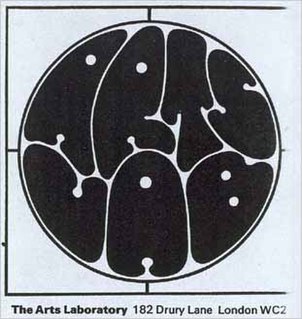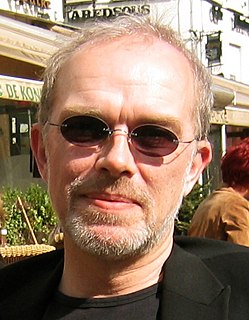Related Research Articles

The American Film Institute (AFI) is an American film organization that educates filmmakers and honors the heritage of the motion picture arts in the United States. AFI is supported by private funding and public membership fees.

The Royal Academy of Dramatic Art is a drama school in London, England, that provides vocational conservatoire training for theatre, television, film, and radio. It is based in the Bloomsbury area of Central London, close to the Senate House complex of the University of London and is a founding member of the Federation of Drama Schools. It is one of the oldest drama schools in the United Kingdom, founded in 1904 by Sir Herbert Beerbohm Tree. It moved to buildings on Gower Street in 1905. It was granted a Royal Charter in 1920 and a new theatre was built on Malet Street, behind the Gower Street buildings that was opened by Edward, Prince of Wales, in 1921. It received its first government subsidy in 1924. RADA currently has five theatres and a cinema. The school’s Principal Industry Partner is Warner Bros. Entertainment.

The School of Visual Arts New York City is a for-profit art and design college in Manhattan, New York. It was founded in 1947, and is a member of the Association of Independent Colleges of Art and Design.

Pittsburgh Filmmakers was one of the oldest and largest media arts centers in the United States, operating from 1971 to 2019.
Johannes Birringer is an independent media choreographer and artistic director of AlienNation Co., a multimedia ensemble that has collaborated on various site-specific and cross-cultural performance and installation projects since 1993. He lives and works in Houston and London.

Experimental film, experimental cinema, or avant-garde cinema is a mode of filmmaking that rigorously re-evaluates cinematic conventions and explores non-narrative forms or alternatives to traditional narratives or methods of working. Many experimental films, particularly early ones, relate to arts in other disciplines: painting, dance, literature and poetry, or arise from research and development of new technical resources.
John "Hoppy" Hopkins was a British photographer, journalist, researcher and political activist, and "one of the best-known underground figures of 'Swinging London' " in the late 1960s.
The London Film-makers' Co-op, or LFMC, was a British film-making workshop founded in 1966. It ceased to exist in 1999 when it merged with London Video Arts to form LUX.
The Telluride Institute (TI) was founded in 1984 in the resort town of Telluride, Colorado, by John Lifton, Pamela Zoline, John Clute, John Naisbitt and Patricia Aburdene, authors of the Megatrends books, and Amory and Hunter Lovins of the Rocky Mountain Institute.
The Nickel Independent Film Festival is an annual film festival held in St. John's, Newfoundland and Labrador, Canada. The festival was conceived in 2001 by filmmaker Roger Maunder to allow local filmmakers to exhibit their film and video work. The festival is named after the Nickel Theatre which was the first theatre in Newfoundland to have talking film feature movies. Since then the festival has grown to include other Canadian and even international short films, features, documentaries and music videos. The festival is held at the LSPU hall which is run by the Resource Centre for the Arts, an artist-run company.
John Lifton is an artist and theorist whose work explores the relationships between art, science, the environment and technology. He was a founder of both the London New Arts Lab (1968), which focused on film and video art, and the Institute for Research in Art and Technology (IRAT) as dissident alternatives to the original Arts Lab (London). The latter became a center for film, video, sculpture, experimental literature and avante-garde arts-science/arts-technology crossovers. In the 1970s, Lifton moved to the Rocky Mountains and in 1977 he co-founded the Telluride Institute.
The Maryland Film Festival is an annual five-day international film festival taking place each May in Baltimore, Maryland. The festival was launched in 1999, and presents international film and video work of all lengths and genres. The festival is known for its close relationship with John Waters, who is on the festival's board of directors and selects a favorite film to host within each year of the festival.
David Daniels is an American commercial director, filmmaker, and co-founder of the Portland, Oregon based animation studio Bent Image Lab.
The imagineNATIVE Film + Media Arts Festival is the world's largest Indigenous film and media arts festival, held annually in Toronto in the month of October. The festival focuses on the film, video, radio, and new media work of Indigenous, Aboriginal and First Peoples from around the world. The festival includes screenings, parties, panel discussions, and cultural events.

The Arts Lab was an alternative arts centre, founded in 1967 by Jim Haynes at 182 Drury Lane, London. Although only active for two years, it was influential in inspiring many similar centres in the UK, continental Europe and Australia, including the expanded Institute of Contemporary Arts (ICA) in London, the Milky Way/Melkweg in Amsterdam, the Entrepôt in Paris and the Yellow House Artist Collective founded by Martin Sharp in Sydney.

Stephen Partridge is an English video artist who studied under David Hall and his career as an artist, academic and researcher, helped to establish video as an art form in the UK.
Fee Plumley is a British-born digital artist, technology evangelist, and digital consultant. She lives in Australia and is a citizen. She worked for the Australia Council for the Arts on its "Arts content for the digital era" program, producing initiatives such as Geek in Residence and the Digital Culture Fund. Since 1997, she has collaborated with Douglas Rushkoff. She is a regular guest on the Australian Broadcasting Corporation's Download this Show on Radio National, where she talks about datamining.
Sally Foy Dixon was an American arts administrator, curator, and advocate of American experimental film and filmmakers. She was a Film Curator at Carnegie Museum of Art in Pittsburgh, Pennsylvania from 1970 to 1975 and interim director of Film in the Cities in Minneapolis, Minnesota, from 1978 to 1979. She also served as Director of the Bush Foundation for Artist Fellowships from 1980 to 1996 and was a consultant for the Pew Charitable Trusts, The MacArthur Foundation, the Herb Foundation, and the Leeway Foundation.
The Centre for Experimental Art and Communication (CEAC) was a Canadian artist-run centre that developed out of the Kensington Arts Association (KAA) [1973-1978] in 1976 as a multimedia space that provided an important venue for experimental and avant-garde art in Toronto, Ontario and beyond. CEAC was the first ever multi-media centre owned and operated by an artist-run centre in Toronto and the largest non-institutional art space during its time. The centre engaged with artists, musicians, and activists from across North America through organized exhibitions, in addition to hosting video production facilities, workshops, screening, and performance series'. CEAC encouraged artist-to-artist communication and provided a platform for Canadian artists to expand their knowledge through international tours. The centre was also home to the radical art magazine Art Communication Edition, later renamed STRIKE. Despite its success as an artist-run centre from 1976 through to 1978, CEAC was disbanded in the summer of 1978 following scandal and the withdrawal of government funding from the Ontario Arts Council
The Norwich Women's Film Weekend was a two-day annual event that ran for 10 years, from 1979 to 1989, at Cinema City in Norwich. It was organised to 'promote and encourage women film-makers and present the audience with films dealing with women's issues', as the first programme (1979) put it. It was the first event created, curated, managed and implemented by a group called Cinewomen. The NWFW lasted longer than any other women's film festival in the UK and forms part of the history of women's cinema and feminism more generally, and also the history of culture and the arts in Norwich.